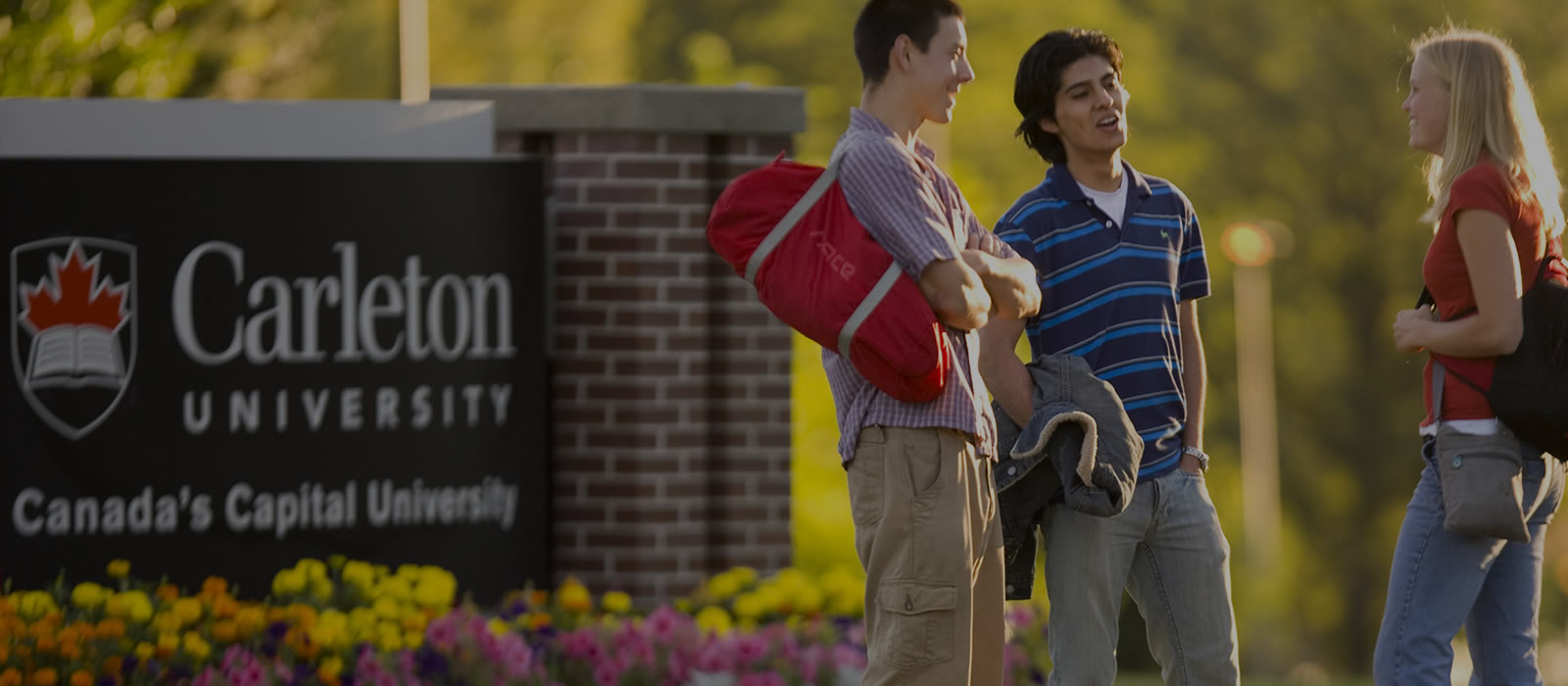- The degree is a Bachelor/Master of Cognitive Science (B.Cog.Sc./M.Cog.Sc.) not a B.A or MA. This is a novel degree designation.It represents the fact that, in Cognitive Science, students take courses from Science (Neuroscience, Computer Science), Humanities/Arts (Philosophy, Linguistics) and Social Science (Psychology).
- The Department is separate, fully functioning administrative unit (the Department of Cognitive Science, or DCS), that offers three degrees (B.Cog.Sc. (Hons), M.Cog. Sc., Ph.D.). It is the only fully independent cognitive Science program in Canada – most are collections of courses with only a few dedicated to cognitive science.
- There is a co-op option. Past co-ops have included (a) working with a company that designs web sites to ensure that they user friendly, (b) working on campus as a research assistant in various facilities, include at the ACE lab. in WSIM (flight simulation), or in Engineering or Psychology labs, (c) Working at high-tech firms (e.g., IBM), and (d) working at a government agency (e.g., STATS CAN).
- Most of the Cognitive Science courses are taught by one of the 14 fully or cross-appointed faculty. There are faculty who are: (a) appointed to Cognitive Science only (7), (b) 50-50 in cognitive science and one of those other departments (7)
Dr. Elizabeth Christie, an Alumni of the Ph.D. program, discusses why she chose to study Cognitive Science at Carleton.What do Cognitive Scientists Study?
Cognitive scientists are involved in the application of cognitive science research to real world problems. With researchers in a variety of disciplines, areas of research is varied. Here is a sampling of the types of research you could explore, learn and join:
- logical foundations of language, computational logic
- attention, spatial navigation, categorization
- language acquisition, neurolinguistics and psycholinguistics
- pragmatics, field linguistics, language change, cross-linguistic variation,
- mathematics education, gaming, visualization, team-oriented technology,
- modelling platforms, some examples are: Visuo, ACT-R, and NetLogo
- development of language and literacy, theory of mind and executive function.
Read more information about our research.
Learn more about the degree that’s right for you!
The Department of Cognitive Science at Carleton University is one of the few institutions in North America to offer all three Bachelor’s, Master’s, and Doctoral degrees in Cognitive Science.
